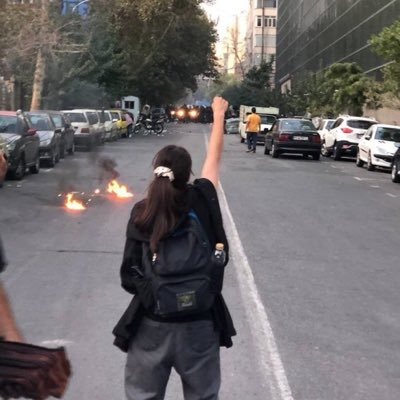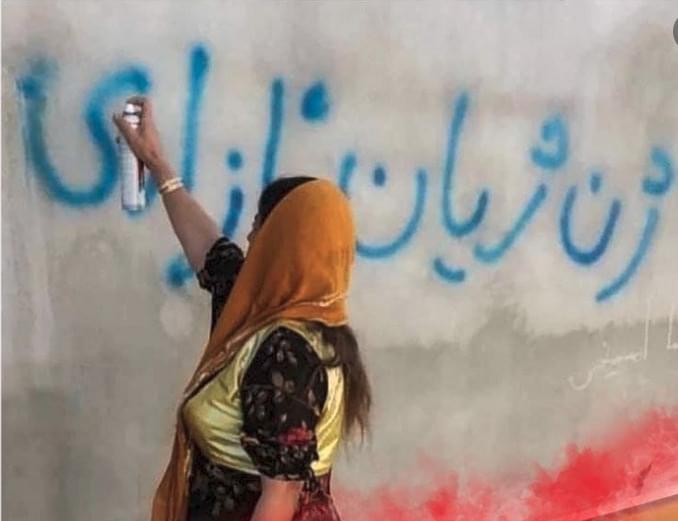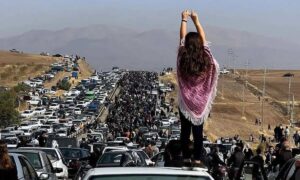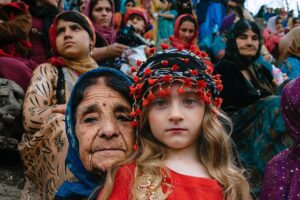
Karim Fatm-Mohammadi

Introduction
The recent offensive actions by Hamas against the occupied Palestinian territories, accompanied by atrocities against Israeli civilians, have garnered widespread condemnation as acts of evil. Even United States President Joe Biden has characterized these actions as pure evil. Irrespective of the semantics used to describe these events and the framework through which this conflict is comprehended, it poses a complex moral-political dilemma. From an ethical standpoint, our moral duty obligates us to condemn the atrocities committed by both Hamas and the Israeli state while unconditionally supporting the Palestinian cause in their struggle against injustice and the lack of freedom. Ethical stances inherently carry practical implications, herein lies the dilemma. Viewed from a political perspective, we must exercise caution not having our support appropriated by the Hamas movement, as their ideological tenets not only fail to address the issues of injustice and lack of freedom but, to some extent, exacerbate these problems. Thus, when it comes to active political engagement, this scenario necessitates careful consideration. In brief, striking a nuanced balance between our moral and political positions becomes an intricate challenge.
On the Palestinian front, we are confronted with two predominant forces: the Islamic Resistance Movement (Hamas), an Islamist fundamentalist movement whose political ideologies and practices are incongruent with democratic principles, and the Fatah-dominated Palestinian Authority (PA), an undemocratic, monopolistic, and corrupt government that lacks the capacity to initiate a democratic blueprint for the Palestinian movement’s future. In essence, we are left with two unpalatable choices. In this context, those who envision a democratic and pluralistic future for the Palestinians face a quandary: either maintaining a silence marked by moral condemnation or risking that their efforts will be exploited by these forces for undemocratic agendas. While this description may seem oversimplified, the objective of this concise article is not to delve into the intricate historical context of this conflict and how it reached its present state. Instead, I aim to explore a fundamental question: What can this situation teach us about the future of the ‘woman, life, freedom’ movement? In this short essay, I will contemplate this question by first elucidating the concept of evil and then scrutinizing how this understanding can guide the ‘woman, life, freedom’ movement, averting it from the same moral and political dilemma witnessed in the Palestinian movement.
The Concept of Evil and Political Movements
To begin, it is essential to clarify that, in this article, the concept of evil is employed in a broad sense, encompassing a spectrum of adverse social and political circumstances, along with wrongful actions, whether perpetrated by institutions or individuals[1]. In the context of political movements, I define a movement as evil when its policies, despite its intentions to promote good, result in evil. This evil emanates from the movement’s policies and actions rooted in its discourse. From this perspective, the concept of evil is closely linked to the frustration of some expectations[2]. The fundamental idea is straightforward: social movements should alleviate, not perpetuate, evil.
In the case of liberation movements against injustice and the lack of freedom, the expectation is that they will develop discourse, formulate policies, and take actions to mitigate evil. However, it can be argued that the very intention to resist injustice by any political movement is inherently virtuous, regardless of the potential consequences. This perspective holds some validity. In the context of political movements and their resistance to injustice, the rejection of evil underpins their moral and political stance. This partly accounts for the expectation that such a movement should generate good, rather than evil. Nevertheless, the intention to combat evil is persistently at risk of being actualized through improper means and actions, as exemplified by the Palestinian movement, particularly Hamas. The challenge thus lies in navigating this intention to resist evil correctly. This necessitates a commitment to advancing good, namely justice and freedom, through policies and actions that avoid perpetuating evil, resulting in injustice and a lack of freedom.
Now the question is what are the implications of recognizing that a liberating political movement, contrary to expectations, is susceptible to producing evil? I contend that this realization has at least two implications. Firstly, it allows room for critique, which, at its core, implies that the discourse and policies of the movement should be subjected to ongoing evaluation and deliberation. The foundational premises and justifications that underpin these policies, as well as their foreseeable outcomes, must undergo public and critical scrutiny. Critique not only assesses the appropriateness of the movement’s policies and their alignment with political realities but also compels the movement to consistently adhere to its normative foundation—reducing evil. In this way, critique becomes a guiding force that prevents the movement from falling short of its expectations, specifically in the pursuit of good—justice and freedom.
Secondly, one of the most significant implications of the pervasiveness of evil is its potential to foster the politics of non-violence. When political movements acknowledge that they are susceptible to perpetuating evil, it becomes challenging, if not impossible, to justify violence as a choice and political tool. In essence, non-violent methods can be explored to a greater extent when a belief in the absence of pure evil prevails.
In the context of Iran and Rojhelat (Iranian Kurdistan), this understanding of evil and its implications can offer valuable insights into the current ‘woman, life, freedom’ movement and its future. While there exists substantial potential within marginalized and minoritized groups to resist evil, it is imperative to acknowledge that the mere intention to resist alone does not eradicate evil. History has shown that resistance in the form of a political movement can sometimes lead to even greater evil. Therefore, the justifiability of resistance hinges on its contribution to the realization of good—namely, the eradication of injustice and the restoration of freedom.

Democratic Discourse and Resistance
A fundamental principle in political discourse when confronting resistance to evil is to articulate a desire for good, specifically justice and freedom, within a democratic and inclusive political framework. When a movement fails to articulate such discourse, both the intention to resist and the movement are imperiled. In the absence of this discourse, not only do movements falter in mitigating existing evils, but they also risk inadvertently contributing to and amplifying even greater evils.
The absence of such discourse hinders the effectiveness of resistance and political efforts to reduce evil. Consequently, when a movement cannot significantly alleviate evil within a reasonable timeframe, it erodes trust in the efficacy of the movement’s policies, giving rise to disillusionment and passive acceptance of the status quo. Alternatively, individuals may become susceptible to undemocratic and fundamentalist political ideologies.
These phenomena are discernible to varying degrees in Iranian society, necessitating serious contemplation and interpretation. The emergence of far-right, nationalistic, and, to some extent, fascist tendencies, in both the centre and the peripheries, can be attributed to the failure of the movement and political parties to articulate a democratic and inclusive discourse and establish clear and sustainable policies and actions. This threat should not be underestimated, as it gradually undermines the foundations of democratic politics and the peaceful pursuit of solutions to current and anticipated challenges.
In conclusion, the concept of evil and its implications play a pivotal role in the realm of political movements and their resistance to evil, specifically against injustice and a lack of freedom. Recognizing the ubiquity of evil opens space for critique and the politics of non-violence, underscoring the importance of democratic discourse in guiding resistance efforts. The successes and failures of movements can be traced back to their ability to effectively mitigate evil, and the absence of a democratic and inclusive discourse can lead to unintended consequences, including the rise of undemocratic and fundamentalist ideologies.
[1] Some individuals may raise questions regarding the moral accountability of institutions and social movements, as they do not possess individual agency, which might render discussions of responsibility seemingly paradoxical. Nonetheless, it is conceivable to establish moral responsibility for an institution or a movement through the utilization of the concept of ‘collective responsibility’ (For more insights see Scarre, G., 2012, “Evil Collectives,” Midwest Studies in Philosophy, XXXVI: 74–92(.
[2] In this context, ‘privation’ is not employed in its theological connotation but instead signifies the absence of specific impediments or incentives that conform to social and moral norms.




